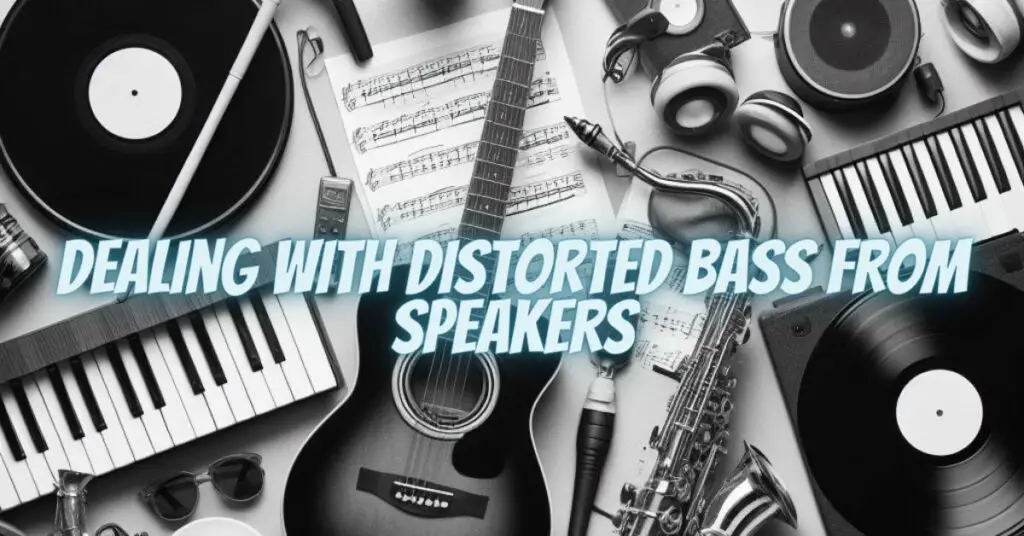A distorted bass sound emanating from your speakers can be frustrating, especially when you’re trying to enjoy your favorite music or watching a movie. This distortion can detract from the listening experience and, if left unaddressed, can potentially damage your speakers. In this article, we’ll explore the common causes of distorted bass sounds from your speakers and offer practical solutions to resolve this issue.
1. Speaker Overload
One of the primary reasons for distorted bass sounds is overloading your speakers. Bass frequencies demand more power and excursion from the speaker’s diaphragm, and when they receive too much power, distortion can occur.
Solution: Ensure your amplifier or receiver is not delivering more power than your speakers can handle. Consult the speaker’s manual for the recommended wattage range and adjust your amplifier’s output accordingly.
2. Clipping and Distortion from Amplifier
When an amplifier is pushed beyond its limits, it can cause clipping, which results in distorted sound. This issue can affect both bass and treble frequencies.
Solution: Check the gain settings on your amplifier and adjust them to avoid clipping. Properly setting the gain ensures that the amplifier delivers the correct amount of power to the speakers without distortion.
3. Speaker Damage
Damage to the speaker’s components, such as the diaphragm or voice coil, can lead to distortion, particularly in the bass frequencies. Physical damage or wear and tear over time can cause issues.
Solution: Inspect your speakers for visible damage, like torn diaphragms or displaced voice coils. If you notice damage, consider having the speakers repaired or replaced.
4. Poor Speaker Placement
The positioning of your speakers in a room can impact bass response. Placing speakers too close to walls or in corners can lead to boomy bass or muddiness.
Solution: Experiment with speaker placement by moving them away from walls and corners. Try different positions to find the best balance between bass clarity and overall sound quality.
5. Inadequate Room Acoustics
Poor room acoustics can exacerbate bass distortion. Acoustic issues, such as standing waves, can create uneven bass response in your listening space.
Solution: Consider implementing acoustic treatments like bass traps or diffusers to improve room acoustics. This can help mitigate issues related to standing waves and improve the overall bass clarity.
6. Equalization Settings
If your audio system employs equalization or tone control settings, incorrect adjustments can lead to distorted bass sounds. Overboosting bass frequencies can push your speakers beyond their capabilities.
Solution: Carefully review your equalization settings and adjust them to a level that provides balanced bass response without overemphasis. Consult the user manual for guidance on optimal equalization settings.
7. Speaker Impedance Mismatch
Mismatched speaker impedance between your speakers and amplifier can lead to distortion. For example, connecting 4-ohm speakers to an 8-ohm-rated amplifier can strain the amplifier and cause distortion.
Solution: Ensure your speakers and amplifier have compatible impedance ratings. Connecting speakers with the recommended impedance can alleviate distortion issues.
Addressing distorted bass sounds from your speakers involves troubleshooting and identifying the root causes of the issue. Whether it’s related to power overload, amplifier settings, speaker damage, or room acoustics, careful examination and adjustments can help restore clean, distortion-free bass to your audio system. By taking the time to diagnose and resolve these issues, you can enjoy a high-quality listening experience that’s free from the annoyance of distorted bass sounds.

